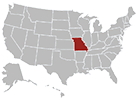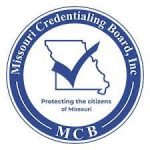
Recovery coaches have had some personal experience with overcoming addiction.
This could be as a patient or family member, which is critical to helping other patients on the road to recovery.
To become a certified coach, two requirements are to recover from substance abuse or mental health disorder and acquire the required training to assist others through recovery.
Recovery coaching is just one tool in the professional’s portfolio.
Sponsors and therapists also play considerable roles in helping others achieve sobriety to rebuild their lives.
If becoming a professional recovery coach in Missouri sounds like a field you’re interested in pursuing, keep reading to learn more!
Page Navigation
- Steps to Become a Professional Recovery Coach in Missouri
- Schools in Missouri
- Recovery Coach Representative Schools in Missouri – Summary Table
- Salary
- Frequently Asked Questions
- How many recovery coach credentials exist in Missouri?
- What costs are involved in becoming a recovery coach in Missouri?
- What does the day-to-day of a recovery coach in Missouri look like?
- Does Missouri require a background check before certification?
- Can I become a Missouri recovery coach without lived experience?
- Are educational qualifications required to work as a recovery coach in Missouri?
Steps to Become a Professional Recovery Coach in Missouri
Steps to become a Missouri recovery coach include the following:
Step One: Complete Your High School Diploma
The most basic first step is to complete your high school diploma.
This is required for entrance into a training program.
Step Two: Submit a Training Application
The next step is to navigate to mopeerspecialist.com to submit a training application.
Only 30 applicants are chosen at a time, but all applicants will receive a notification two weeks before their training start date if the application is successful.
Step Three: Complete the Training
Complete the training at one of the Missouri-approved organizations.
Most training programs consist of five days and 30 to 40 hours in the classroom.
Step Four: Take the Supervised Examination
Once the training is complete, take the online certification examination.
This is a supervised exam to ensure no cheating occurs.
The training prepares students for the various sections of this examination.
Step Five: Complete the Certified Recovery Coach Application
Once the training and exam are completed, trainees must visit the Missouri Credentialing Board website and complete the certification application.
The form costs $75, and all documents must be submitted to the board for review.
If the application is approved, the candidate completes all requirements to become a certified recovery coach and will be issued a certificate.
Step Six: Renew the Certification
Missouri law requires all recovery coaches to renew their certification every two years, along with proof of 20 hours of continuing education.
Six of the 20 hours must include ethics training.
Schools in Missouri
The training is only offered by the Missouri Credentialing Board.
Recovery Coach Representative Schools in Missouri – Summary Table
Top 1 Schools in Missouri
| School Name | Address |
|---|---|
| Missouri Credentialing Board | 428 E Capitol Ave, Jefferson City, MO 65101, United States |
Salary
The median annual recovery coach compensation in the U.S. is $34,300, with pay ranging from $30,700 to $38,400.
The median yearly salary in Missouri is $32,700, with a pay range of $29,300 to $36,500.
Annual Salary Range:Average Salary of Professional Recovery Coachs in Missouri
| City Name | Salary |
|---|---|
| Kansas City | $33,674 |
| St. Louis | $33,808 |
| Springfield | $32,098 |
| Independence | $33,638 |
| Columbia | $33,419 |
| St. Joseph | $33,349 |
| Lee's Summit | $33,546 |
| St. Charles | $33,625 |
| St. Peters | $33,552 |
| Florissant | $33,753 |
Regional Salary in Missouri
| Region | Employed | Avg. Annual Salary | Avg. Hourly Pay | Top 10% Annual Salary | Bottom 10% Annual Salary |
|---|---|---|---|---|---|
| Cape Girardeau, MO-IL | 90 | $54,300 | - NA - | $75,860 | $27,400 |
| Columbia, MO | 220 | $56,830 | - NA - | $102,620 | $27,860 |
| Jefferson City, MO | 140 | $48,990 | - NA - | $77,750 | $26,090 |
| Joplin, MO | 170 | $48,730 | - NA - | $77,550 | $25,510 |
| Kansas City, MO-KS | 2,080 | $59,840 | - NA - | $101,040 | $25,850 |
| St. Joseph, MO-KS | 130 | $50,640 | - NA - | $83,100 | $28,760 |
| St. Louis, MO-IL | 2,410 | $49,590 | - NA - | $76,910 | $27,460 |
| Springfield, MO | 260 | $52,260 | - NA - | $78,940 | $25,660 |
* Employment conditions in your area may vary.
Frequently Asked Questions
How many recovery coach credentials exist in Missouri?
Three types of credentials exist:
Certified Peer Specialist
The educational requirement to become a certified peer specialist is a one-week training course followed by passing an online exam.
Once complete, candidates apply to the credentialing board to receive their certification.
Other requirements include:
- Proven recovery experience.
- Working in Missouri at least 51% of the time.
- Signing the Recovery Code of Ethical Practice and Professional Conduct.
Certified Reciprocal Peer Recovery Specialist
Applicants seeking the Certified Reciprocal Peer Recovery Specialist designation must complete 500 hours of volunteering or work in the peer support role.
Twenty-five hours must be under the supervision of IC&RC peer recovery domains.
Also, candidates must finish 46 hours of training to gain knowledge of all domains and pass the exam.
The 46 training hours include advocacy, ethical responsibility, education and mentoring, and wellness and recovery support.
Applicants must also sign the Code of Ethics.
Missouri Recovery Support Specialist
Those seeking to become a Missouri Recovery Support Specialist must finish 1,000 hours within ten years and complete the MRSS 3-day training program.
Other requirements include signing the Code of Ethics and submitting a professional reference form.
What costs are involved in becoming a recovery coach in Missouri?
Since only a limited number of candidates are hand selected, the training and certification exam forms are free.
However, the Certified Peer Specialist and Missouri Recovery Support Specialist application fees are $75 each, with a $70 renewable fee.
The Certified Reciprocal Peer Recovery Specialist application fee costs $200.
What does the day-to-day of a recovery coach in Missouri look like?
There are no dull days for recovery coaches since there is a direct connection between the individual in recovery and the coach.
This connection aims to foster validation, acceptance, and hope, thus avoiding relapse after the treatment.
The most common services of a professional recovery coach include the following:
- Assisting families with support.
- Contacting clients to check on progress and listen to their struggles.
- Finding outlets for online peer support.
- Helping clients attend local substance abuse meetings.
- Recommending health or mental health professionals, such as psychiatrists and therapists.
The best coaches recommend lifestyle changes to ensure the patient maintains a healthy emotional, mental, and physical life.
Does Missouri require a background check before certification?
All recovery coaches are submitted to the Family Care Safety Registry Worker Registration Form, which allows the state to conduct a background check.
Those with the following issues will be disqualified from certification:
- Crimes against a minor.
- Listed name in the Missouri Department of Mental Health disqualification registry.
- Listed name on the Department of Social Service or Department of Health and Senior Services employee disqualification list.
Can I become a Missouri recovery coach without lived experience?
You cannot become a certified recovery coach without lived experience with substance abuse or mental health disorders.
The coach’s purpose is to provide patients with firsthand experience so that they will see you as a role model toward recovery.
Loved ones, family members, and friends without lived experience can become a Certified Addiction Recovery Coach.
Are educational qualifications required to work as a recovery coach in Missouri?
The only required education is a high school diploma to enroll in training sessions.
However, many employers request healthcare qualifications or relevant experience in the field before employment, regardless of certification status.




